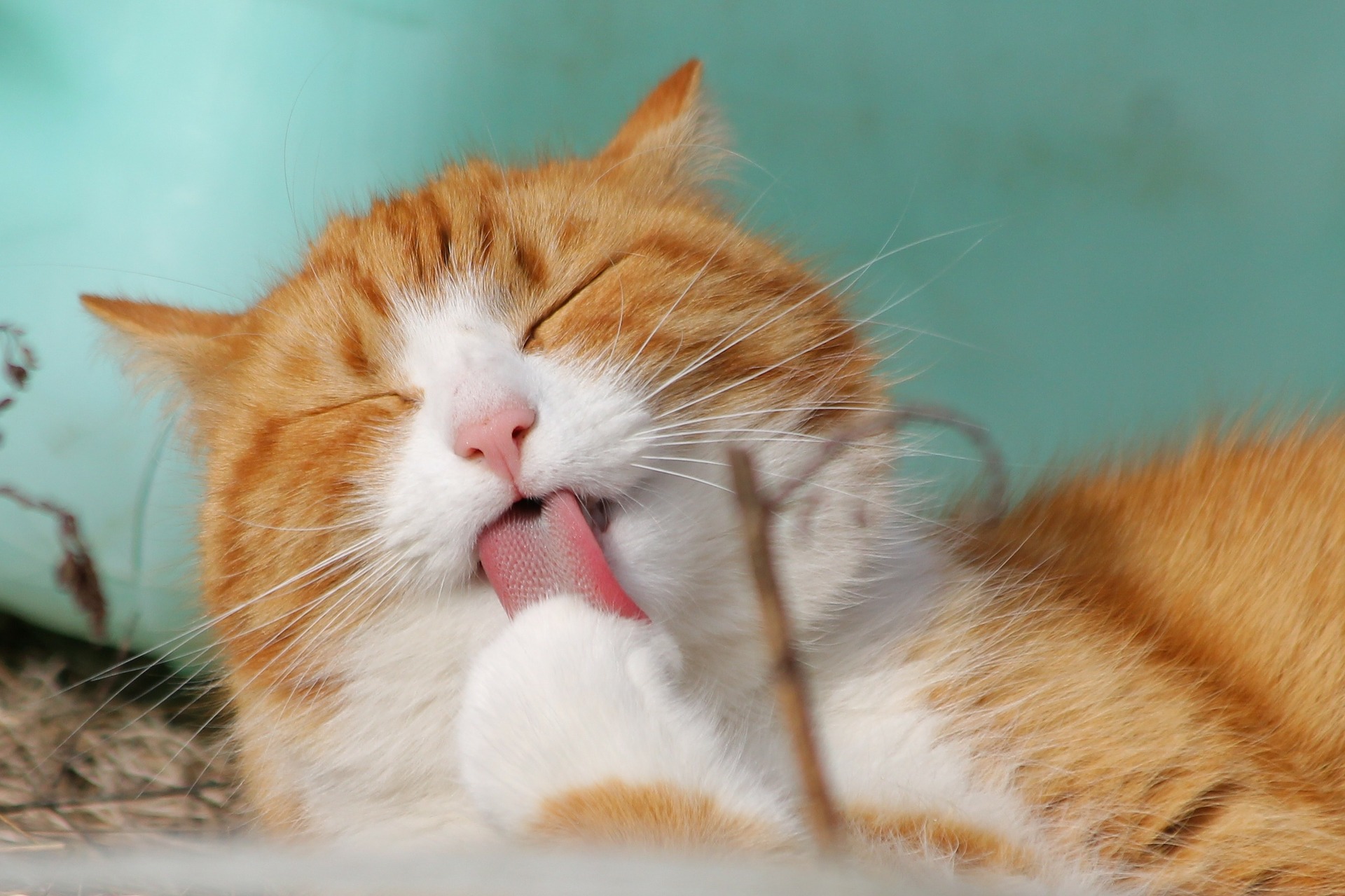If your cat is like most felines, she spends hours every day grooming herself. Lick the paws, check. Use the damp paws to clean behind the ears, check. Your cat is capable of bending and contorting herself into all manner of funny positions to aim that rough tongue “just so” at a particular problem area.
In general finicky cats are pretty good at keeping themselves clean. However, it turns out there are other reasons your cat grooms him or herself besides cleanliness.
Why are Cats Great Groomers?/
"Cats groom themselves not only to keep clean but for several other health reasons:
- To regulate body temperature
- To keep her coat clean and smooth by distributing natural skin oils
- To stimulate circulation
- To cool herself down through evaporation of saliva
- To eliminate parasites, infection, and allergies
- To prevent hairballs
- Displacement behavior: If your cat feels embarrassed, anxious, or as though she’s in a conflict, she may lick to calm herself.” (Source: Hillspet)
How Can You Help Your Cat with Grooming?/
Yes, your cat can handle most grooming just fine on her own. However, we think it's a good idea to spend some time each week grooming your cat, too. That way, you can check for fleas, unattended mats in your kitty's fur, and the overall health of your cat's skin. Additionally, brushing your cat removes excess hair. This is especially useful if you have a long-haired cat.

How to Spot Troublesome Cat Grooming Habits/
If you see your cat either neglecting her grooming habits or spending an excessive amount of time on them, both are cause for concern. "The medical name for excessive grooming in kitties is psychogenic alopecia. It happens when a cat’s normal licking activity crosses over into an obsessive behavior. Excessive grooming is one of the most common compulsive disorders in cats." (Source: Mercola)
This can happen because your cat is stressed or anxious. Cats love routine, so a change in the household, perhaps even moving the litter box, can upset some cats and lead them to spend even more hours in the day grooming themselves than usual. Cats use grooming themselves to self-soothe and to reduce anxiety.
It's possible that you may not realize your cat is over-grooming herself until you see bald spots or major hair loss. If you spot these, please make an appointment with your veterinarian.
But what about neglect? What if your kitty stops grooming herself and you notice matted fur, maybe even a little unpleasant odor? What can you do about that? "Pain or illness will cause a cat to lose interest in grooming. Aging cats may suffer from arthritis, which makes it painful for them to maneuver their bodies for cleaning; the simple act of grooming may also tire them out. Overweight cats have a hard time reaching the areas they want to clean and are frustrated by their attempts...A cat that's drooling and eating less than usual may have diseased gums, a toothache or mouth tumor, all of which make grooming uncomfortable. Or a lifestyle change that upsets him may also cause your cat to stop grooming." (Source: Animal Planet)
You can help your cat groom by brushing her, but if your cat's behavior has changed in any way, it's a sign there could be something physically wrong and you'll want to make an appointment with your veterinarian.

